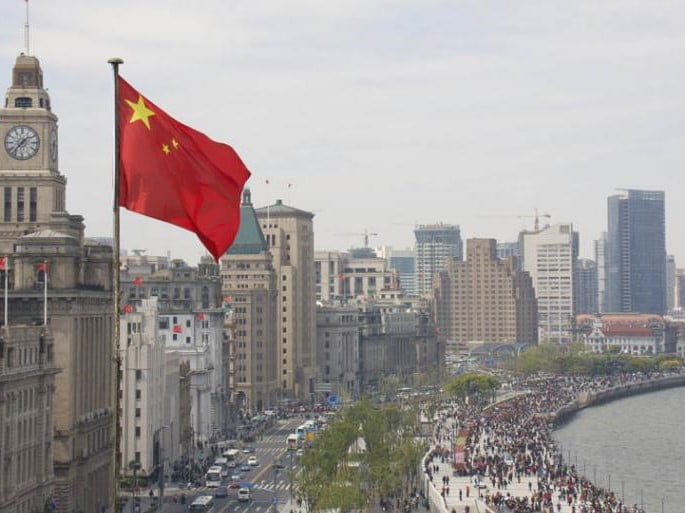The independence of Australian and other western universities with fully-fledged sister universities, joint ventures, campuses and research institutes in China is under attack from Beijing after Xi Jinping’s regime launched an unprecedented offensive to install Communist Party cadres at the top levels of all foreign education institutions.
The move is a complete backflip on long-term promises and contracts inked by the all-powerful Party, which guaranteed non-interference by the state and has now triggered universal fears by western academics that free speech and critical thought will be compromised.
Western universities have flocked to the Middle Kingdom in droves over the past decade to join the student gold-rush, as demand for western education from China’s growing middle class has exploded.

Australia has been a world leader in creating a mass market for international students who study at campuses in Australia and increasingly too at facilities being built around the region, especially China, to help feed a $22 billion-a-year sector that is second only to resources in Australia’s list of top exports.
Committing investment into the huge but notoriously problematic Chinese market, where the ruling Communist Party has complete control over all facets of society including business and education, has been something Australian corporations have been reticent to do.
But Australia’s tertiary institutions which have been commercialising at an accelerated pace over the past 20 years have dived in with a strong focus on research institutes, often dismissing warnings of market risks by people with longer term China experience.
Academics privately complain that professional managers are now running Australia’s tertiary institutions and are often deleterious to the institutions academic focus and excellence.
China, with its world leading population, is the biggest market for international students and provides 30 per cent, or 170,000 students for Australia’s international student cohort, a business that was worth $22 billion in 2016-2017, a lift of 18.5 per cent on the previous year.
Monash University, for instance, is an institution that was at the fore-font of the international student surge. It has a fully-fledged joint venture university with Southeastern University, a Graduate Management Institute in Suzhou part of the populous Yangtze River delta in middle of which sits Shanghai.
Most of the Group of Eight universities has at least one joint venture research institute, although some of these are “virtual”
The surprise move was first reported by the United Kingdom’s Financial Times and comes amid a flurry of other measures aimed at increasing the Party’s control over everything anywhere near it>
It comes after the success of President Xi’s comprehensive victory at the Chinese Communist Party’s five year conference last month, where he was handed an effective unlimited mandate.
The strategy reflects a broader project that was initiated under Xi several years ago to tighten state’s control over China’s already state-run universities, some of which were displaying a bit too much independent thinking for the control freaks in Beijing.
Party Committees were expanded and upgraded, and all students were made to take classes in Marxist-Leninist Theory with the usual rider of the version ‘with Chinese characteristics’.
So, in fact, Australian universities are already deeply complicit in compromised academic environments in the bewildering range of partnerships with scores of Chinese universities.
These relationships have continued to be inked apace with little regard to the realities facing their Chinese partners: now it’s all just a bit clearer for others to see.
Looking at the recent history of foreign entities moving into China, the eventual move of universities was inevitable.
The strategy begins with welcoming foreign investment and knowhow with open arms and guarantees under the sun that they will be left alone, allowed to compete, and protect from intellectual property theft.
Then the noose starts to tighten, local imitations spring up, gain scale and suddenly no one is buying product, or as was the case in the technology sector, your website is blocked by the Great Firewall of China as you watch local imitators become some of the biggest and most powerful businesses in the country: Baidu, Tencent, Sina and Alibaba.
Apple survives (for now), but with growing range of competitors; network equipment makers like Cisco Systems, Ericsson and Alcatel Lucent have not been so fortunate, seeing there breakfast, lunch and dinner eaten up by Huawei Technologies and ZTE.
IBM and even the industry most assiduous dictatorship schmoozer Microsoft are facing a bleak future,
The move on universities will probably have a slightly different ending, in that Beijing may want to eventually drive out the western universities who have paid for the facilities and most importantly, proved the know-how for better research techniques and practices.
The possible model could be gleaned from tracing how Beijing made it ethically untenable for Google to remain operating in China, forcing into compromise after compromise.
This is step two, to test the foreign universities following a series of protests by Chinese students against lecturers teaching very different version of Communist China history to the state sanctioned photo-shopped version.
Eventually the universities spoke up and right on cue Beijing launched a tirade of outrage.
Now the CCP has stuck an entire foot in to truly test the water to see how this could be stomached. But rest assured that further steps will have already been lined up to rollout for those who champion mammon over ethics.
The final result, and this is just a hypothesis based on the Party’s track record, will be fire sale with only one bidder,
For now, Australia’s universities are staying mum. Universities Australia offered a thoughtful and erudite contribution of “no comment.”
Doubtless the Group of 8 – and all the rest as well – are busily attending to duties in private, but at some stage they will have to say something without offending the Chinese.
It’s a classic Beijing trap: Stay silent and the West condemns you, speak up and Beijing cuts off your biggest revenue stream, Chinese students.
That’s called a Catch-22 with Chinese characteristics.
Do you know more? Contact James Riley via Email.

